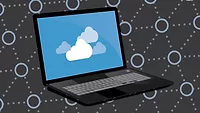5 crucial cybersecurity resolutions to embrace this World Backup Day

Image via Unsplash
World Backup Day is coming up on March 31st. But let’s face it: like most commemorative dates, it’s a fluffy holiday standing in for a critical idea — businesses and individuals need to take data security way more seriously than they currently do. Against a backdrop of rising cybercrime, this is especially true. Cybercrime’s global cost will skyrocket over the next four years, going from $9.22 trillion in 2024 to $13.82 trillion in 2028. And apart from hackers, there are still the more boring but no-less devastating data loss cases that stem from human error, like an executive laptop left on a plane losing proprietary, critical intellectual property.
As cybersecurity pros, perhaps World Backup Day could be the day to institute some resolutions to help plug the gaps and prepare for a world of rising cybercrime and inevitable errors. Here are five to put forward, both as reminders for security managers and the companies you serve. Some of these might seem like no-brainers. But if that were true, all companies would already be doing them, wouldn’t they?
Stop hitting “remind me later” on software updates
Software updates are one of the best ways to match the pace of rapidly evolving cybercrime. But how often does every user in a company update their phones and computers?
Keeping the software that serves your business patched and updated is an easy way to protect yourself against data breaches and the headaches that are sure to ensue. Yesterday’s versions of your software are only built to fit yesterday’s cybersecurity landscape. As tempting as it may be, don’t swat away the update reminders: keep your software current.
Don’t use work devices for personal matters
Making this a matter of policy is a surefire way to reduce your data loss vulnerability. Work processes should exist in a closed and carefully controlled ecosystem, with vetted software and solutions supporting the everyday flow of work. By mixing in their personal stuff — whether in the form of applications, emails, browsing, etc. — employees are introducing weak points into your system. Rather than having to litigate every possible exception under the sun, it’s way easier and safer to make it a blanket matter of company policy: no personal matters on company devices.
Don’t use personal devices for work
The above principal cuts both ways. There’s no way to reliably ensure that your employees are keeping their own software scrupulously updated. If employees are bringing work into their personal devices, it’s simply not possible to hold those devices to the same standard of cybersecurity to which you hold work devices — which are after all company property. This goes beyond software updates, extending into backup solutions — data loss on a personal device is likely permanent data loss.
Use the correct tools for the correct purpose
Too often in the cybersecurity industry, cloud collaboration platforms (also known as CCPs) have been mistaken for tools that they weren’t originally intended for. CCPs and other platforms like it are great at exactly what they sound like — collaborating with team members on documents and sharing files with clients.
But CCPs are typically misused as backup tools, in which they don’t have file encryption, proper backup and disaster recovery options and will likely not be accessible in the case of a cybersecurity attack. So just like you wouldn’t use a hairbrush to brush your teeth — make sure that your team uses CCPs for collaboration and backup to truly back up files.
Back it up and back it up regularly
At the end of the day, when a disaster strikes, all that will matter is how your company can get its data back. And your last line of defense for this is quite simple — backing up your team’s data regularly using an endpoint backup solution. For enterprises, regularity should mean continuously — not once a day.
Having this kind of protection in place completely disarms the bad guys because your business can restore its data, effectively, to moments before it was stolen. And, of course, this is helpful for accidental data loss too. That can of pop sparking the motherboard may be a major pain in the neck — but with endpoint backup in place, it no longer spells disaster.
A holiday based in mishap
World Backup Day allegedly started because a Reddit user lost his external hard drive back in 2011 and all his data was nowhere to be found. The fact that a whole holiday has been propped up on this event shows that this experience is all-too common. By adhering to the resolutions proposed above and promoting them in the workplace, cybersecurity pros can help flatten the curve in 2024.
Looking for a reprint of this article?
From high-res PDFs to custom plaques, order your copy today!








